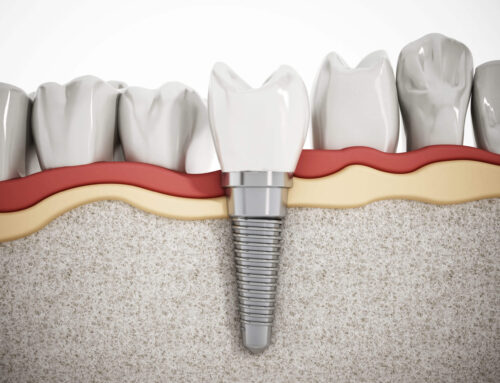Good News! When you have a wisdom tooth extraction these days, recovery is significantly less complicated than 10 or more years ago. This is especially the case when an experienced oral maxillofacial surgeon removes your wisdom teeth. And for a fearful or anxious patient, that’s news to be thankful for, especially around Thanksgiving Day! Modern dental extractions make it easier for patients to get back to normal activities sooner when they follow post-op instructions. Learn more about how you too can best manage pain after an extraction.
The Procedure is Always Pain-Free
Oral surgeons typically perform the wisdom tooth extraction procedure while you’re under local anesthesia. Your gums and mouth are nice and numb, so you don’t feel the procedure while it’s happening. However, some patients may need different anesthesia depending on anxiety levels and if they need a surgical extraction. Regardless of which form of anesthesia you receive, you won’t feel any pain during the extraction. But once the anesthesia wears off some time after the procedure, you’ll experience initial pain symptoms.
Aftercare Management Types
Fortunately, your oral surgeon will prescribe some basic pain medications to help you manage pain after your extraction.  Your particular medication will depend on your medical history and any other medications you may take. The oral surgeons of OMSH prefer to prescribe non-opioid medications to help your recovery and prevent possible addictions. Other times, simple ibuprofen, or a stronger prescribed form, will suffice with handling the pain. Sometimes, patients receive antibiotics to ensure there’s no development of infection around the surgical site during recovery.
Overall, dental extraction pain is normal and it can take anywhere from 2-4 days to subside as your gums and nerves recover. Every patient is different, so your oral surgeon will provide specific instructions and things you should know about your recovery period.
Wisdom Tooth Extraction Management at Home
Having a tooth pulled is not like a walk in the park, it’s a surgical procedure that requires adequate aftercare. When you follow the instructions, you not only manage any associated pain, but you also allow your gums the proper time they need to heal. Here are some common aftercare instructions that can help you recover quickly and effectively…
Ice Up
When you lose a tooth and/or have surgery, your gums and cheeks will naturally begin to swell to begin the healing process. This is normal, but pain may also accompany swelling initially. So, be sure to use ice packs to place directly on your face next to the surgical site. Icing will not only help reduce the swelling, but it will also help reduce pain. You must ice as the instructions indicate.
Get Your Rest After a Wisdom Tooth Extraction
After a wisdom tooth extraction, it’s best to relax for the first three days and allow your body time to recover. You will need to refrain from vigorous or strenuous activities and avoid heavy lifting to prevent excessive bleeding. Also, you’ll want to rest with your head slightly elevated above your heart.
Watch What You Eat
The instructions will be clear on what you can eat and drink after surgery. Usually, a few hours after the procedure, you will not want to eat due to pain. But if you’re hungry, you can only eat soft foods and drink a little at a time. Patients cannot use straws to drink or sip, nor can they eat extremely hot, spicy, sticky, chewy, or crunchy foods during their recovery period. Also, avoid smoking and drinking as they may slow down the healing process.
Take Your Medication as Directed
Whatever the doctor has prescribed, take the medication as directed. This is the best way to manage pain. After a few days, you should no longer experience any form of dental or ghost pain from the extraction. However, if the pain continues for more than 5 days, or if you develop a fever, consult with your oral surgeon right away.
Dental Care During Recovery
Be very gentle when brushing your teeth and avoid forceful spitting. Your dental physician will advise you on when you can return to brushing your teeth. He or she may also prescribe a gentle antiseptic rinse to use for a few days to keep the extraction site clean while it heals. Moreover, the first few days will consist of warm saltwater rinsing to help the healing process.
Wisdom Tooth Extraction Common Complications
It is common to experience pain and swelling or other complications after the extraction. However, if the symptoms persist for more than four days, or they become significantly worse, see your oral surgeon. In such cases, there may be an indication of some underlying issue. Some of the common complications that may follow a wisdom tooth extraction include dry socket, infection, and nerve injury. In any of these cases, you will notice pain worsening and spreading to other areas of the face, or you may develop a fever.
Though all of these cases are extremely rare, they could happen, especially when patients do not carefully follow post-operative instruction.
For an appointment, or to receive more information, connect with the professionals of OMSH in Houston. We’re here to help! Call 713-804-6055 to schedule a consultation.






